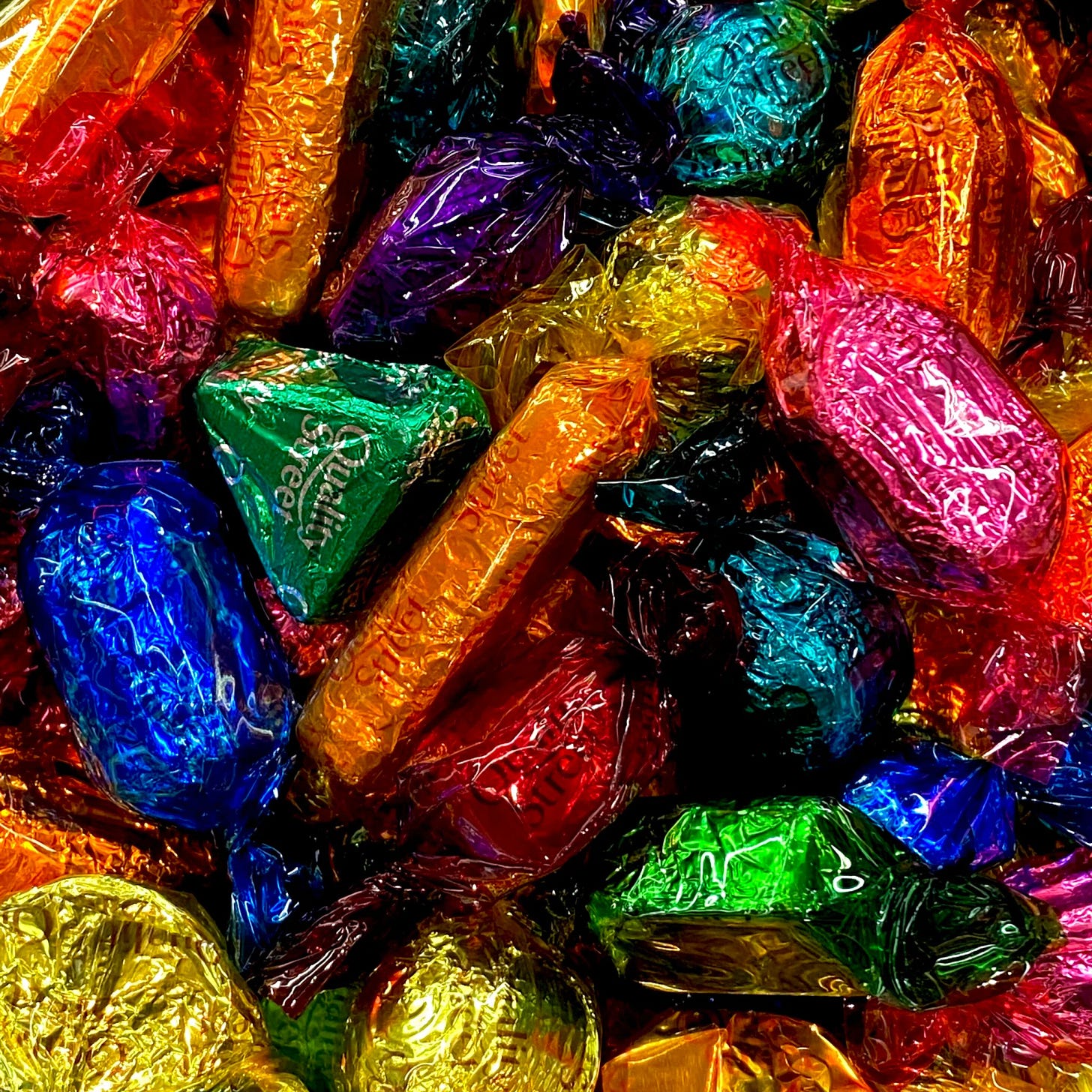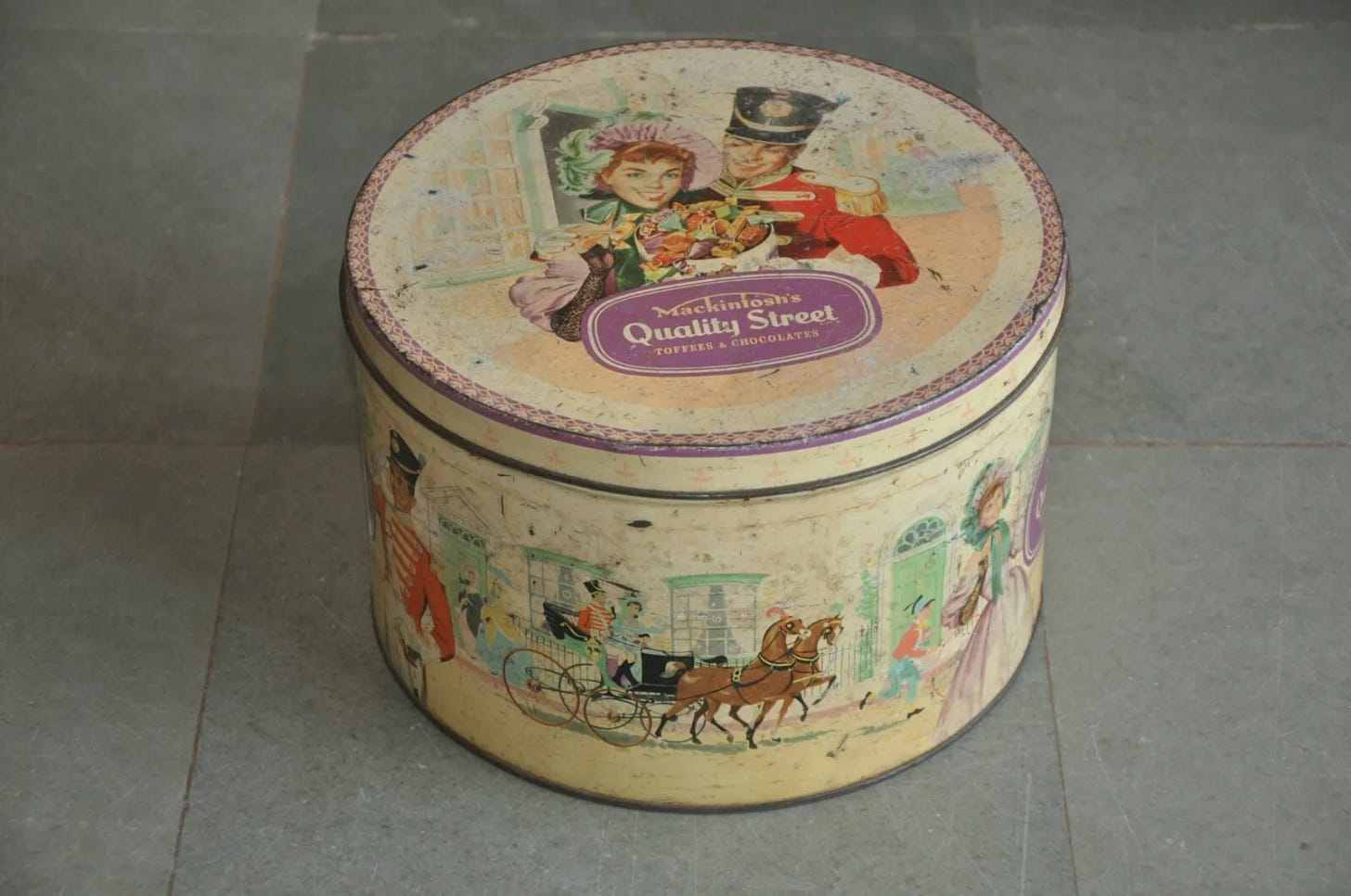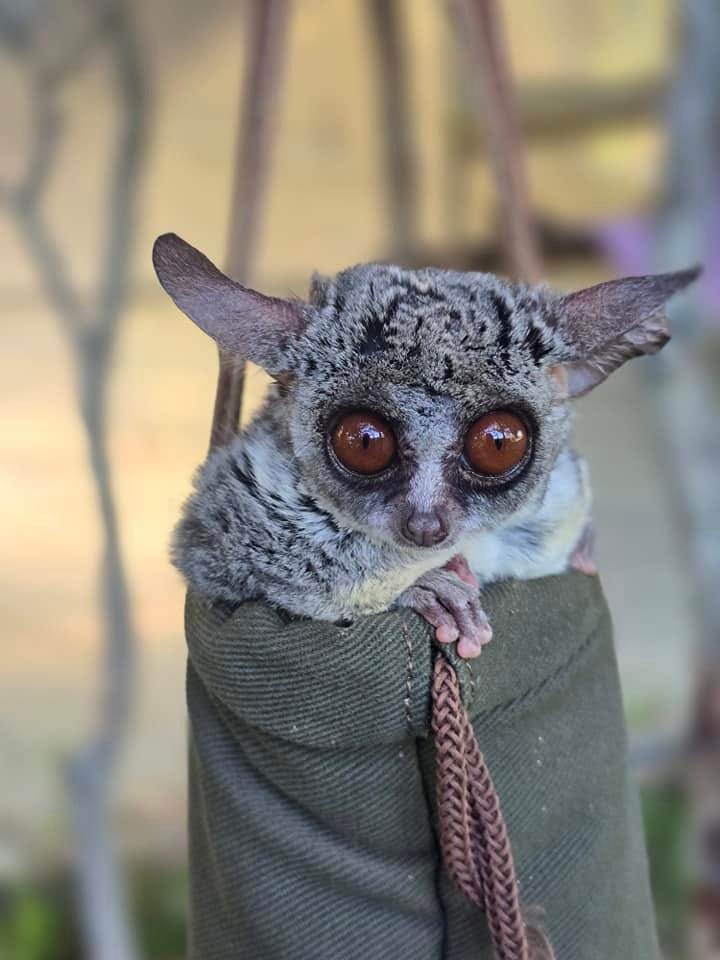Don't mistake the contents for the tin
We don't when it comes to candy. Why the confusion about our minds?
Quality Street chocolates
Before we start on this weekend’s article, first a pause to think of all those affected by the horrific fires in California. Many of us have friends and loved ones whose homes were destroyed. We keep them, and all the many sentient beings devastated by the infernos in our hearts and meditation.
Second, my sincere thanks to all of you who responded so generously to Tuesday’s ‘thank you’ post from Twala Trust. Several subscribers donated to Twala directly via our new Michie Foundation/GDG portal, which was so very kind! Along with the the subscription money I am donating from December, this makes for an encouraging start to the new year for Sarah and her devoted team in Zim, who are also so grateful for the moral support offered by so many of you from around the world.
Standing in a grocery store last December, a memory was triggered as I gazed at a pyramid of glistening chocolate biscuit (cookie) tins. I was very young when friends gave our family a tin of Quality Street chocolates one Christmas. For my American readers, Quality Street are a very British delight: a colourful tin filled with a variety of individually wrapped, rich toffees, creamy chocolates, and fruity confections - as in the photo above.
I grew up in Rhodesia (now Zimbabwe), a former British colony, which was the subject of international sanctions at the time. The biggest impact of sanctions, so far as I was concerned as a child, was that my favourite Kit Kat chocolates had disappeared off the shelves. As had Flakes and Toblerone. Which made the gift of Quality Street chocolates all the more thrilling! And our gratitude to our friends - just returned from a visit outside the country - all the more fervent.
A large, satisfyingly-deep Quality Street tin from the 1960s
My excitement was, naturally, focused purely on the chocolates. Especially the purple-wrapped ones, which back in those days contained a Brazil nut – in itself, the most exotic of imports. The red, strawberry flavoured ones were second of my Top Picks, only slightly ahead of the triangular, green foil-wrapped mint chocolates.
Mum, on the other hand, seemed delighted by the tin. The old Quality Street package used to feature, on the lid, a nostalgic, Victorian-inspired design with a romantic couple in Regency attire, while a horse-drawn hansom cab was shown on the generously deep tin. Why Mum was so ecstatic about an inedible piece of metal mystified me but was also a relief: less competition for the contents!
Within days, the chocolates were eaten. The Quality Street tin found its way to our pantry where Mum, a Domestic Science teacher at Chisipite Senior School, maintained strict order. From then on, any expensive, shop-bought biscuits were stored in the tin, while Mum’s home-made cookies and cakes were kept in a variety of Tupperware containers.
The tin, with its prized contents, remained on the shelf throughout my schooldays. And when my parents migrated back to Scotland, the tin went with them. I found it there when I went to visit them, in the kitchen of their new home on the other side of the world. It continued to be the repository of only the most esteemed chocolate biscuits.
All this came back in a flash, looking at the much more glorious, packaged products in the shop last month. As did the recognition that, even as a child of seven or eight, not for one moment would I have mistaken the contents for the tin. None of us would. The contents were delicious, succulent, moreish. The tin was, meh, just a container.
Curiously, however, most people go through life without discovering that our minds are just the same. The contents of our minds, the things that we’re drawn to, that engage us - sometimes to the point of obsession – all those glistening, brightly-wrapped confections – come and go. They are temporary. Ephemeral. Now you see them, now you don’t.
Mind itself, like the tin, is not its contents. The contents, whatever they may be, pass through without in any way affecting it. How many biscuits came and went through Mum’s Quality Street tin over the decades? Countless thousands. And on my last visit to Scotland, the tin was still there performing the same function it always had, unaffected by all the years of a great many arrivals and departures.
Before I took up meditating, I used to assume that my mind was its contents. Despite the unhesitating clarity I’d had since I was a child about the fact that the chocolates are not the tin, when it came to my own mind, I was absurdly muddled.
Why don’t we teach kids this basic analogy? It would help save them from years, perhaps a lifetime, of self-inflicted pain.
Because when we apply this simple metaphor to our mind, it invites a personal exploration and begins to shift the relationship we have with our thoughts. We see them with greater clarity for what they are. Not the be-all and end-all we may have assumed. Not things that somehow define us.
So much emotional energy, anguish and anger arises from who we think we are, how we identify ourselves with this or that, and our views about how other people respond to the self we may quite desperately be trying to project.
But when we see thoughts as mere thoughts, cognitive ephemera, we are not so invested in them. The emotion drains out. We also care less about labels and identity. We see the dance of the ego for what it is and, little by little, learn to withdraw our attention from the chocolate Brazil nut and strawberry delights which, when they become all-consuming, have only one predictable outcome: to make us ill.
The chocolate tin analogy also opens the door to a much more interesting question: if mind is what ‘holds’ thoughts, enabling them to arise, abide and dissolve away, then what is its nature? Not tin, obviously. Subjectively speaking, not even matter. The great meditators of the past describe this aspect of mind as its formless or clear nature. Mind is not concrete, fixed or solid. Being formless is what enables any sensation, thought or perception to arise.
The other main quality of mind is its capacity to know things. Whatever is presented to it, through the sense doors or cognitive activity, is known. As our meditation journey unfolds, we can catch a glimpse of what the great yogis and Maha siddhas tell us – that the nature of the mind is clear knowing. And while this clear knowing may currently be obscured by whatever passes through it, in the same way that blue sky may be hidden for days or weeks behind blankets of cloud, it has never gone away. It is always there and always will be – the oft-used phrase ‘unborn and unceasing’ refers to exactly this.
The ‘tin’ that enables thoughts to arise is clear and knowing. It is boundless and - whatever temporary afflictions we experience - can’t possibly be contaminated. This is also sometimes described as our Buddha nature, our tathagatagarbha, signifying our mind’s innate purity.
All sem chens, all mind-havers, own such a tin. You might say that it’s our most precious possession, because it is the basis on which we may become enlightened. Significantly, what currently occupies the tin right now – our thoughts and feelings – while not unimportant to our wellbeing, are ultimately of much less consequence than our understanding of the tin itself. For it is when we realise the true nature of mind, and thereby reality, that liberation is attained.
In a metaphorical sense, Mum was right. The tin was a much more consequential and enduring gift than its fleeting contents.
Literally, she may have been right too. Decades after we were given our brand new sanctions-busting gift, as I opened the somewhat chipped and scarred lid, I often felt an echo of the same delighted anticipation as on that very first occasion, wondering: what delicacy am I about to discover in here today?!
To close, I want to share a couple more images from Twala Trust Animal Sanctuary:
Rhonda the nightape/Galago just can’t help being cute wherever she finds herself.
A recent rescue - a young Lanner Falcon who will soon be flying free, back in the wild where she belongs.
Volunteer Stef has her hands full with these orphaned vervet monkeys.









Ah David, the most easiest explanation I ever read. How clever. That’s it in a nutshell (Quality Street Tin)!
I, like you, also used to enjoy this special gift and like you, enjoyed the same choices you made. It was always so special. My mother too, always kept the tin. They are just so useful.
However, I still get overjoyed at seeing the tin as in your picture. The hint of pleasures to desire lay within, and when the desires were finished, one always looks longingly at the tin. Whilst the contents were fabulous, no matter how long you tried to eek them out, they finally finished. Showing how our grasping eventually leads to samsara. So true in life.
I still enjoy the tin because it promises so much. In your case your mother ensured it continued giving, maybe not exactly what your mind told you but something to be savored.
That is why meditation is so interesting. It is amazing what you see coming out of your own tin. If you savor them as one did the chocolate delights, it is easier to see them for what they are and because they are so bountiful, it is easier to let them go, you
don’t need to eek them out. There will always be another.
I just love the tin!
Thank you for the beautiful photos from Twala. They are just so beautiful.
Dear David,
Thanks for your kind words acknowledging the terrible fires razing Southern California. I grew up in the small town of Altadena, the site of the Eaton Canyon Fire, which is now totally leveled. Although I haven't lived there for decades, my childhood memories of hiking the canyon amidst the smell of sycamore trees are still strong. Such a lesson in impermanence...and staying present with this moment as we figure out how to help family and friends who have been evacuated.
I am so grateful for the Buddha's teachings -- when this level of loss and devastation happens and non-attachment is no longer an abstract idea, that is when we finally understand that the 'contents are not the tin'.
With gratitude,
Misha